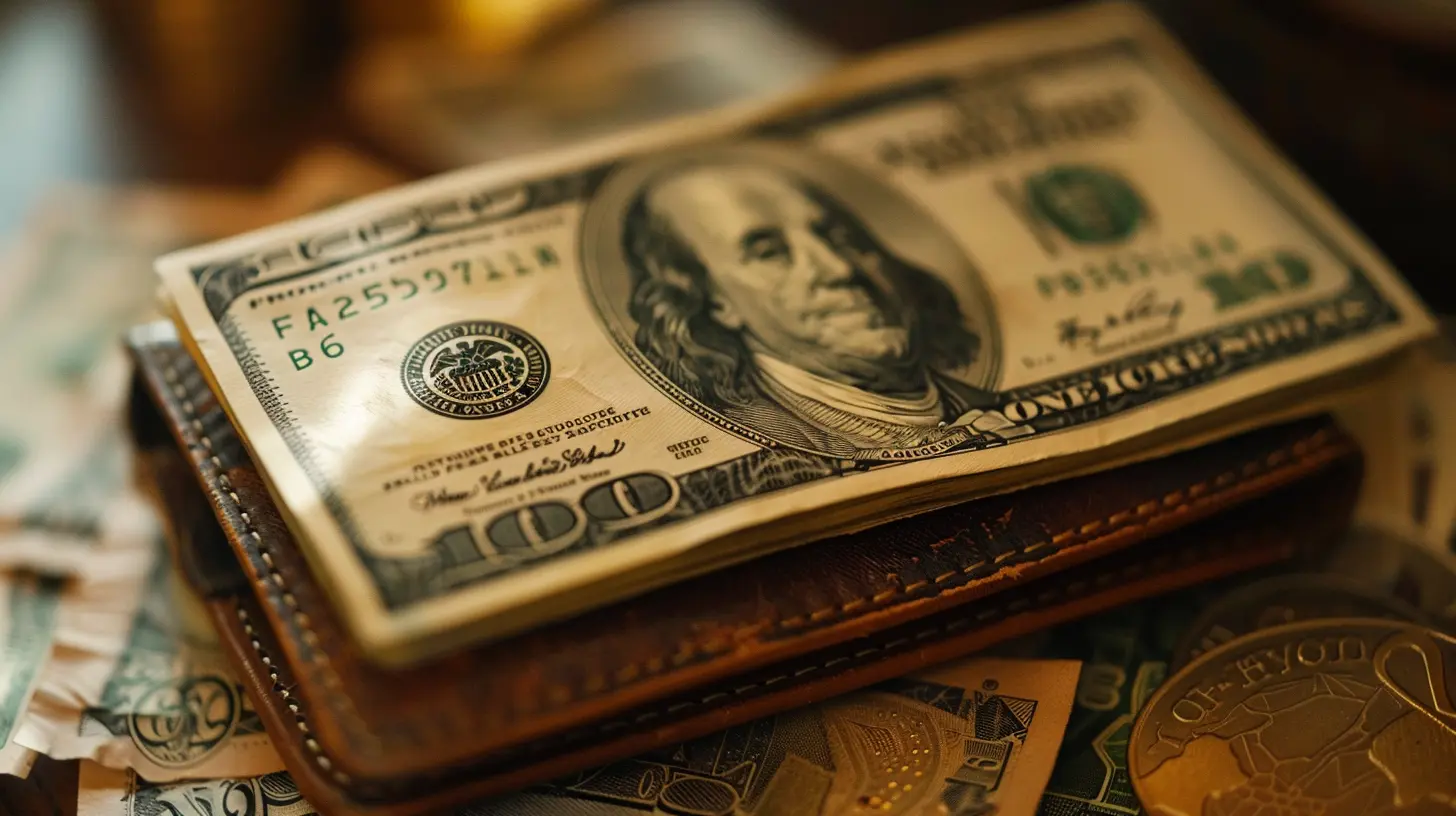The Importance of Paying Yourself First for Sustainable Wealth
5 August 2025
Let’s be honest — money comes in and somehow disappears. Sound familiar? You work hard, pay bills, cover expenses, and promise to save what's "left over." But let’s face it, there’s rarely anything left over. That’s exactly why the idea of paying yourself first is a game-changer. It flips the traditional spending script and puts your financial future front and center.
In this post, we're going to unpack what "paying yourself first" really means, why it matters more than you think, and how it can lead to sustainable wealth without turning you into some budgeting robot. Whether you're just starting to care about money or you've been trying to get ahead for years, this concept could be your financial turning point.

What Does "Pay Yourself First" Even Mean?
It sounds a bit selfish at first, doesn't it? Like you're ignoring responsibilities just to stash some cash. But that’s not the case at all.Paying yourself first means that the first thing you do when you get paid—before paying bills, buying groceries, or scrolling Amazon—is set aside a portion of that money for yourself. Usually, this goes into savings, investing, or retirement.
In short: Treat your future self like a VIP. Give them front-row seats at the money concert instead of sending leftovers.

Why Most People Struggle With Saving
Let’s dig into some harsh truths here. We live in a society that praises consumerism. We’re constantly bombarded with ads, limited-time sales, and lifestyle comparisons on social media. Our wants feel like needs, and savings often take a back seat.Here’s the problem: Most people intend to save but don’t have a system. If you wait till the end of the month to save, chances are that money’s already spoken for.
Ever tried saving “whatever’s left over”? Be honest — how’s that working out?

Why Paying Yourself First Works
So why is this method different? Why does it work for so many people who couldn’t save before?1. It Builds a Habit (Without Relying on Willpower)
Habits are the unsung heroes of wealth. By automating savings or investments right after payday, you no longer rely on motivation or memory. It becomes muscle memory. Like brushing your teeth, but for your bank account.2. It Makes Saving a Priority, Not a Maybe
When you pay yourself first, you're saying, “Saving is a necessity, not an afterthought.” It shows you value your future more than short-term wants.3. It Helps You Live Below Your Means (In a Sneaky Way)
If your savings disappear from your checking account before you even see them, what are you left with? A smaller amount to live on. This forces you (in a good way) to adjust your spending habits. You adapt — and usually quicker than you think.4. It Accumulates Over Time Without You Noticing
Think about this: If you're saving $200 a month, that’s $2,400 a year. In 10 years, that’s $24,000 — not counting interest or investment growth. All from one small, consistent action. It’s the snowball effect but in your favor.
How Much Should You Pay Yourself First?
Great question — and the answer varies.The classic advice is the 50/30/20 rule: 50% of income goes to needs, 30% to wants, and 20% to savings. That 20%? That’s your "pay yourself first" fund.
But listen, if 20% feels impossible right now, start with 10%. Heck, start with 5%, or even 1% if that’s all you can swing. The amount matters less than the habit. Once it’s in motion, you can ramp up.
Where Should Your "Pay Yourself First" Money Go?
Here’s the fun part — you can choose based on your goals. It’s not always about just dumping money into a savings account.Emergency Fund
Before anything else, make sure you've got a safety net. Aim for 3–6 months' worth of expenses. Life loves curveballs — job losses, car repairs, surprise medical bills. An emergency fund keeps those from becoming financial disasters.Retirement Accounts
Want to work forever? Didn’t think so. Contributing to 401(k)s, IRAs, or other retirement accounts is one of the smartest moves you can make. Thanks to compound interest, the earlier you start, the less you need to stash later.Investment Accounts
Once your emergency fund and retirement are covered, investing can take your wealth to the next level. Think index funds, ETFs, or even individual stocks if you’ve got the knowledge (or a good advisor).Sinking Funds for Big Goals
Planning a vacation? Buying a home? Starting a business? Set up individual savings buckets for specific goals. That way, you’re not pulling from emergency savings or running up your credit card.
What If You’re Living Paycheck to Paycheck?
First off, no judgment. Many people are in that spot. But paying yourself first is especially important when money’s tight, because the habit sets the stage for financial freedom down the road.Start tiny. Even $10 per paycheck sets the wheel in motion. As your income grows or expenses shrink, increase it. You’re building a muscle.
How to Actually Start Paying Yourself First
It’s not rocket science, but it does take some intention. Here’s a step-by-step to make it happen:Step 1: Calculate What You Can Realistically Save
Look at your budget (or start one). What’s your take-home pay? What do you absolutely need to survive? What can you cut?Start small — even 1% is better than zero.
Step 2: Set Up Automation
This is key. Manually transferring funds every month is a pain and easy to forget.You can:
- Set up a percentage of your paycheck to go directly to savings
- Use apps that round up purchases and save the difference
- Use auto-transfers the day after payday
Automation turns intention into action.
Step 3: Treat It Like a Bill (Non-Negotiable)
You wouldn’t skip your rent or power bill, right? Treat your savings the same way. It's not optional — it's essential.Step 4: Adjust Over Time
Got a raise? Increase how much you pay yourself before upgrading your lifestyle. Windfall? Pay yourself a bonus, too.Your strategy should evolve with your income and goals.
Mindset Shift: You Deserve to Build Wealth
We often think saving is about discipline. But it’s actually about believing you're worth it. That your future is worth investing in. That your dreams deserve funding just as much as your landlord or grocery store does.The rich don’t get rich by accident. They make intentional choices early and let time do the heavy lifting.
So flip the script. Stop living paycheck to paycheck by default. Start living with purpose.
Real Talk — It’s Not Always Easy
Let’s not sugarcoat this. Life happens. Lost jobs. Family emergencies. Unexpected bills. You might fall off the saving wagon now and then — and that’s okay. The goal isn’t perfection; it’s progress.What matters is sticking to the mindset. Don’t let a bad month stop you from trying again next month.
Final Thoughts: It’s Not Just About Money — It’s About Freedom
At the end of the day, paying yourself first isn’t just a financial strategy — it’s a life philosophy. It’s saying you are worthy of prioritizing. Your peace of mind is more valuable than instant gratification.Because sustainable wealth isn’t just about building a pile of money. It’s about creating freedom — freedom to make choices, take risks, and live life on your terms.
So next payday, before the world takes its cut of your income, take yours first. Your future self will be forever grateful.
all images in this post were generated using AI tools
Category:
Money ManagementAuthor:

Harlan Wallace
Discussion
rate this article
1 comments
Vireo Taylor
Pay yourself first—because even your savings deserve a little pampering! 💰✨
September 1, 2025 at 10:22 AM

Harlan Wallace
Absolutely! Prioritizing your savings not only secures your future but also allows you to appreciate your financial journey. 💪💖


